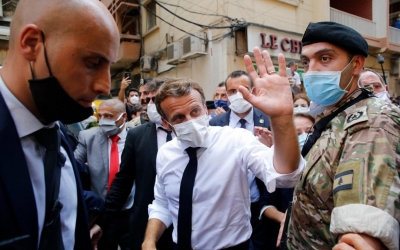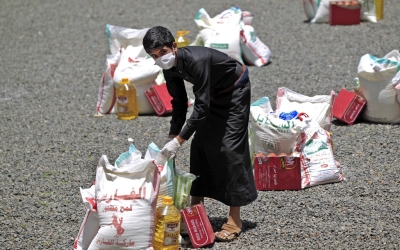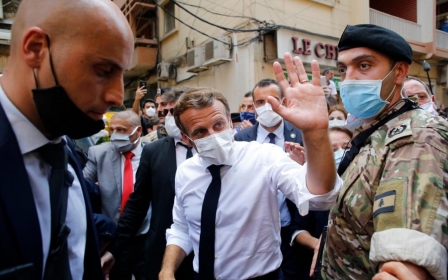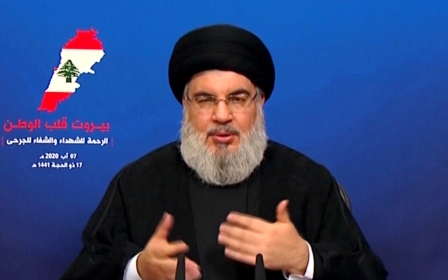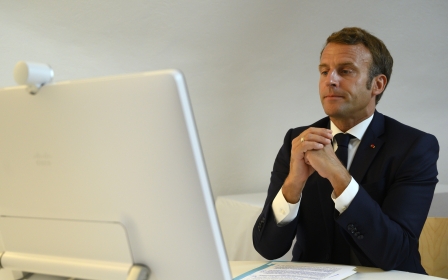Beirut explosion should not be 'politicised', says Iran
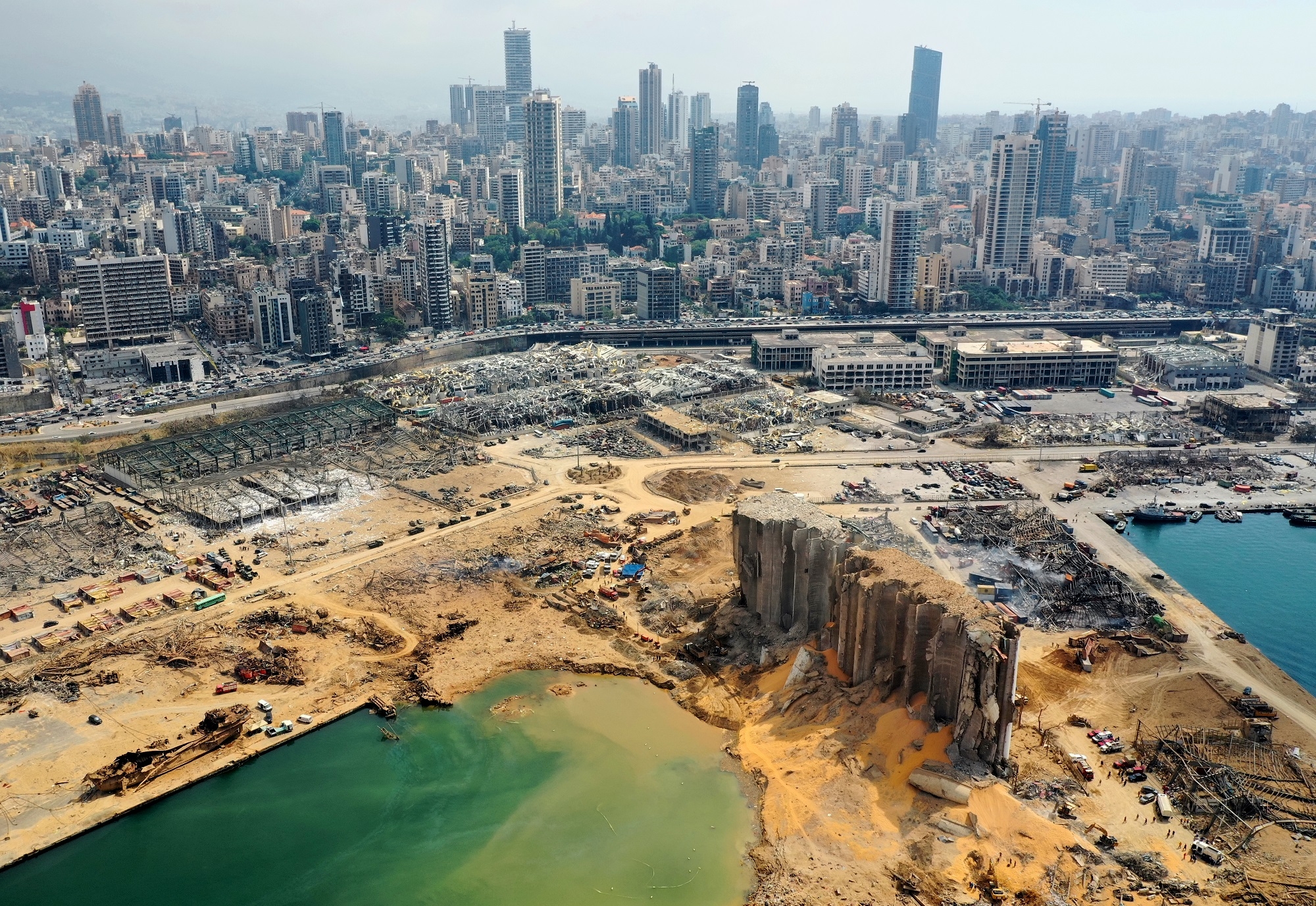
Iran has called on the international community to refrain from politicising last week's explosion in Beirut and urged the United States to lift sanctions against Lebanon.
Foreign ministry spokesman Abbas Mousavi made the remarks during a news conference on Monday when he also highlighted the need for a thorough investigation of the explosion.
"The blast should not be used as an excuse for political aims... the cause of the blast should be investigated carefully," Mousavi said.
French President Emmanuel Macron visited Beirut's shattered streets on Thursday, two days after the chemical explosion on the waterfront, as crowds demanded an end to decades of corrupt politics of patronage.
Asked about the visit, Mousavi accused countries of "trying to politicise this blast for their own interests".
Still, some social commentators and activists in Lebanon have pointed to a lack of action on the part of local officials and the ruling elite since the tragedy, welcoming the contrasted images of Macron shaking hands and offering hugs to people in Beirut.
At the time, Macron said he would propose a "new pact" to Lebanon's political leaders. He added that while France's solidarity with the Lebanese people was unconditional, he wanted to tell some "home truths" to Lebanese political figures.
In a televised address to the nation on Monday, Lebanese Prime Minister Hassan Diab tendered his resignation and said the "crime" was a result of endemic corruption.
"I declare today the resignation of this government. May God protect Lebanon," he said.
President Michel Aoun accepted the resignation and asked Diab's government to stay on in a caretaker capacity.
'They should lift sanctions'
Meanwhile, Macron told an emergency donor conference on Sunday that donors would closely watch how aid was being spent.
While Iran did not attend the conference, which raised around $298m for immediate humanitarian relief, key Arab states in the Gulf, including Saudi Arabia, Qatar, Iraq and the UAE were represented; as were Britain, the US, China, Jordan and Egypt.
The US has long sanctioned Lebanon, preventing aid and blocking trade, due to Hezbollah's influential hand in the country's politics. Washington has designated the Iranian-backed Shia group as a terrorist organisation.
During Monday's news conference, Mousavi said that if the US was "honest about its assistance offer to Lebanon, [it] should lift sanctions".
While humanitarian aid is technically exempt from US sanctions on Lebanon, last week a group of UN experts warned that such exemptions were simply "not working".
Over-compliance on the part of banks and a generally complicated exemption system has been a major obstacle in getting humanitarian aid to sanctioned countries across the world, the group said.
While the group of UN experts did not mention Lebanon specifically, it said such sanctions designations were "bringing suffering and death" to people in sanctioned countries.
"Sanctions that were imposed in the name of delivering human rights are in fact killing people and depriving them of fundamental rights, including the rights to health, to food and to life itself," Alena Douhan, UN special rapporteur, said at the time.
Tuesday's explosion at Beirut port killed more than 200 and wounded over 5,000 people. Over 300,000 people have been rendered homeless, as much of the city has suffered from huge material damage.
Even before the blast, Lebanon was in dire need of aid, as the Lebanese pound lost 80 percent of its value against the US dollar since September, with food prices doubling. Meanwhile, the coronavirus pandemic added extra pressure on the country's floundering economy.
It is estimated that 50 percent of Lebanon's population is living below the poverty line.
Middle East Eye propose une couverture et une analyse indépendantes et incomparables du Moyen-Orient, de l’Afrique du Nord et d’autres régions du monde. Pour en savoir plus sur la reprise de ce contenu et les frais qui s’appliquent, veuillez remplir ce formulaire [en anglais]. Pour en savoir plus sur MEE, cliquez ici [en anglais].


